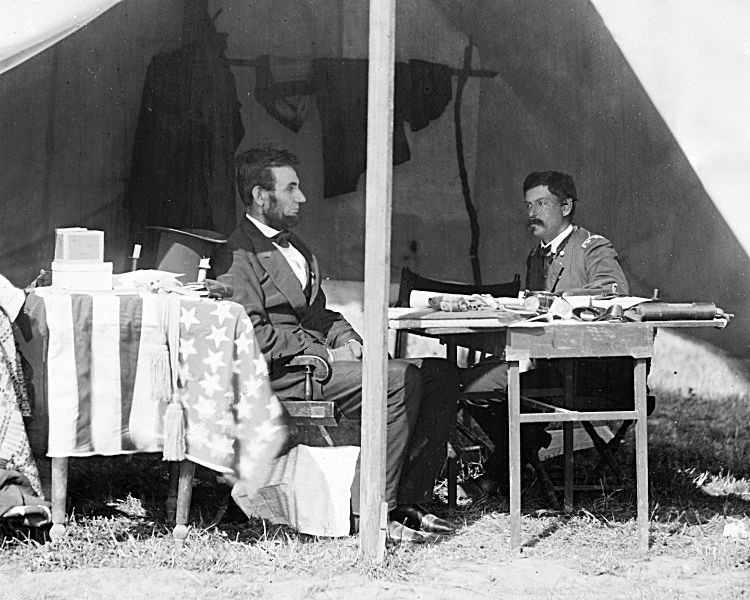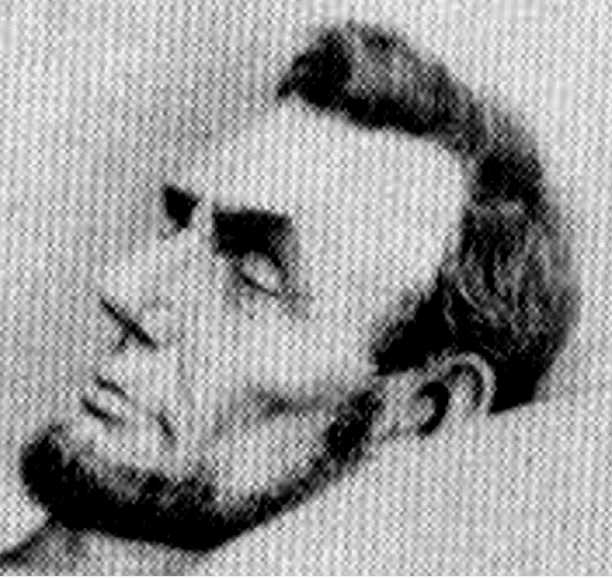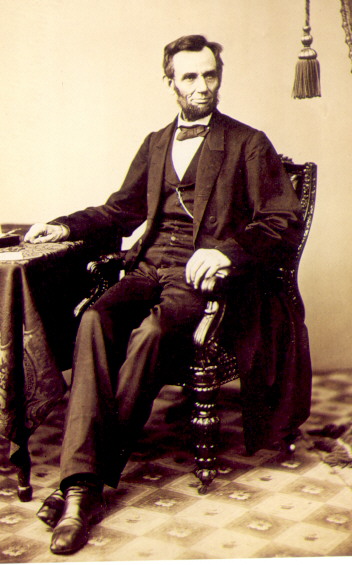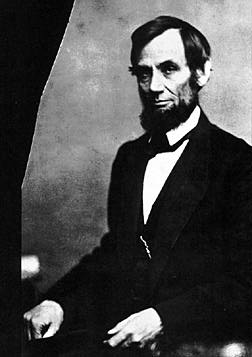Lincoln Death Photos Biography
Source:- Google.com.pkAbraham Lincoln is regarded as one of America's greatest heroes due to both his incredible impact on the nation and his unique appeal. His is a remarkable story of the rise from humble beginnings to achieve the highest office in the land; then, a sudden and tragic death at a time when his country needed him most to complete the great task remaining before the nation. Lincoln's distinctively human and humane personality and historical role as savior of the Union and emancipator of the slaves creates a legacy that endures. His eloquence of democracy and his insistence that the Union was worth saving embody the ideals of self-government that all nations strive to achieve.
Childhood
Abraham Lincoln was born in a log cabin in Hardin County, Kentucky to Thomas Lincoln and Nancy Hanks Lincoln. Thomas was a strong and determined pioneer who found a moderate level of prosperity and was well respected in the community. The couple had two other children: Abraham's older sister Sarah and younger brother Thomas, who died in infancy. Due to a land dispute, the Lincolns were forced to move from Kentucky to Perry County, Indiana in 1817, where the family "squatted" on public land to scrap out a living in a crude shelter, hunting game and farming a small plot. Thomas was eventually able to buy the land.
Law Career
In March, 1830, the family again migrated, this time to Macon County, Illinois. When his father moved the family again to Coles County, 22-year-old Abraham Lincoln struck out on this own, making a living in manual labor. At six feet four inches tall, Lincoln was rawboned and lanky, but muscular and physically strong. He spoke with a backwoods twang and walked with a long-striding gait. He was known for his skill in wielding an ax and early on made a living splitting wood for fire and rail fencing. Young Lincoln eventually migrated to the small community of New Salem, Illinois where over a period of years he worked as a shopkeeper, postmaster, and eventually general store owner. It was here that Lincoln, working with the
public, acquired social skills and honed story-telling talent that made him popular with the locals.
When the Black Hawk War broke out in 1832 between the United States and Native Americans, the volunteers in the area elected Lincoln to be their captain. He saw no combat during this time, save for "a good many bloody struggles with the mosquitoes," but was able to make several important political connections.
After the Black Hawk War,Abraham Lincoln began his political career and was elected to the Illinois state legislature in 1834 as a member of the Whig Party. He supported the Whig politics of government-sponsored infrastructure and protective tariffs. This political understanding led him to formulate his early views on slavery, not so much as a moral wrong, but as an impediment to economic development. It was around this time that he decided to become a lawyer, teaching himself the law by reading William Blackstone's Commentaries on the Laws of England. After being admitted to the bar in 1837, he moved to Springfield, Illinois and began to practice in the John T. Stuart law firm.
Entering Politics
Abraham Lincoln served a single term in the U.S. House of Representatives from 1847 to 1849. His foray into national politics seems to be as unremarkable as it was brief. He was the lone Whig from the state of Illinois, showing party loyalty, but finding few political allies. He used his term in office to speak out against the Mexican-American War and supported Zachary Taylor for president in 1848. His criticism of the war made him unpopular back home and he decided not to run for second term, but instead returned Springfield to practice law.
Civil War
Abraham Lincoln responded to the crisis wielding powers as no other present before him. He distributed $2 million from the Treasury for war material without an appropriation from Congress; he called for 75,000 volunteers into military service without a declaration of war; and he suspended the writ of habeas corpus, arresting and imprisoning suspected Confederate sympathizers without a warrant. Crushing the rebellion would be difficult under any circumstances, but the Civil War, with its preceding decades of white-hot partisan politics, was especially onerous. From all directions, Lincoln faced disparagement and defiance. He was often at odds with his generals, his Cabinet, his party and a majority of the American people.
Assassination
Reconstruction began during the war as early as 1863 in areas firmly under Union military control. Abraham Lincoln favored a policy of quick reunification with a minimum of retribution. But he was confronted by a radical group of Republicans in the Senate and House that wanted complete allegiance and repentance from former Confederates. Before a political battle had a chance to firmly develop, Lincoln was assassinated on April 14, 1865, by well-known actor and Confederate sympathizer John Wilkes Booth at Ford's Theater in Washington, D.C. Lincoln was taken from the theater to a Petersen House across the street and laid in a coma for nine hours before dying the next morning. His body lay in state at the Capitol before a funeral
train took him back to his final resting place in Springfield, Illinois.










No comments:
Post a Comment